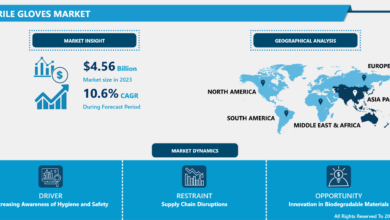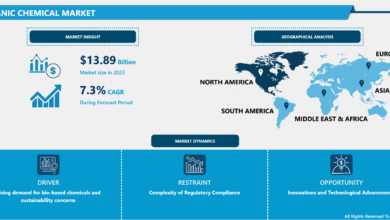ExxonMobil Earns a “D-” on Mid-Term Report Card from Coalition United for a Responsible Exxon (CURE)
Five new board directors in 2021 has failed to change company direction
NEW YORK, Dec. 09, 2021 (GLOBE NEWSWIRE) — The Coalition United for a Responsible Exxon (“CURE” or the “Coalition”) has released a “Mid-Term” report card, six months after the appointment of five new directors to the board of Exxon Mobil Corporation (“ExxonMobil” or the “Company”) (NYSE: XOM). The Company has earned an overall grade of D- for failing to make tangible progress on the targets set by shareholders at the time of the May 26, 2021 annual general meeting.
This first Report Card to assess ExxonMobil’s progress addresses both shareholder concerns and science-based Corporate Net-Zero Standards. It combines four independent scorecards, each with a slightly different ranking methodology and scoring rubric, including letter grades and point systems. The Report Card normalizes and aggregates those scores into one overall “Report Card” letter grade.
The four scorecards include expectations stated in:
- CURE’s “Recommendations to Improve ExxonMobil Corporation,” published in May 2021;
- Engine No. 1’s Ask of ExxonMobil, published prior to the Company’s 2021 AGM, on the Reenergize Exxon website laying out four specific expectations of the new board;
- Say on Climate initiative’s “Road to Zero Emissions” assessment developed to evaluate company progress against 23 Key Performance Indicators (KPIs) across three pillars (to be published Q1 2022); and
- Climate Action 100+ assessment using the Net-Zero Company Benchmark’s 10 disclosure indicators.
Based on shareholder concern about the direction of ExxonMobil, in January 2021, D.E. Shaw completed negotiations with ExxonMobil that expanded the board to twelve seats and brought Michael Angelikis, Jeff Ubben, and Wan Zulkiflee onto the board. At the May 26, 2021 AGM, broad support for the Engine No. 1 slate resulted in the election of Gregory Goff, Kaisa Hietala, and Alexander Karsner (and the removal of Wan Zulkiflee). In addition, three days prior to the AGM, ExxonMobil made an SEC filing in which the Company pledged, “Over the next twelve months, we will work with the Board to secure two new directors, one with energy industry experience and one with climate experience.”
“The five new directors added to the Exxon board this year have, so far, been unable to shift Exxon’s trajectory,” said Andrew Behar, CEO of As You Sow, a member of CURE. “The overwhelming message sent by shareholders to the Exxon Board was that business-as-usual was not acceptable; specific targets were set to measure progress. The new five-year strategy announced by Exxon does not address the most basic requirements expected by shareholders of the leadership of the ExxonMobil board.”
CURE has seen little evidence of a change in company strategy or philosophy since May. In fact, CEO Darren Woods was quoted by the Financial Times as saying the Company did not plan “huge shifts in strategy” when announcing the Company’s second quarter results on July 30, 2021. While ExxonMobil’s “Corporate Plans to 2027” are an incremental step forward, the targets identified do not constitute a science-based, 1.5 degree Celsius aligned climate transition plan. In addition, the plan focuses on intensity-based emissions reduction goals and only provides an “expectation” that absolute emissions will decrease. The plan fails to set segment-specific reduction targets for the midstream and downstream businesses.
Even if Exxon achieves the goal of decreasing its absolute emissions by 20% by 2030 (from a 2016 baseline) or a 1.4% greenhouse gas emission reduction per year, this falls far short of the Science-Based Target Initiative criteria, which states that 4.2% or more of emissions reductions per year are required to be aligned with a 1.5 degree change. The planned reduction would not even achieve the 2.5% or more annual decrease required to achieve alignment with the well-below 2 degrees target.
Furthermore, the Company’s goals only cover Scope 1 and 2 emissions, failing to include Scope 3 emissions, which represent 89% of Exxon’s total emissions. By failing to cover all relevant scopes of emissions and to decrease emissions at a pace consistent with a 1.5 degree scenario, Exxon has failed to produce a Paris-compliant emissions reduction strategy.
Finally, while the $15 billion budget for lower-emission investments is welcome, at $3 billion per year this represents only a tiny fraction — 1.7% — of ExxonMobil’s annual revenues (based on 2020 figures).
CURE also notes that we have yet to see any implementation of the shareholder resolution, which was passed in May, requiring the company to develop a climate lobbying position aligned with the Paris Agreement. This is highly important given the arguments that ExxonMobil and other oil majors have been part of a concerted campaign to spread disinformation about the role of fossil fuels in global warming over the course of several decades, making issues of transparency and ethics even more pressing.
Recommended Actions:
In order to demonstrate progress toward investor goals set for the company, ExxonMobil must develop detailed strategies to improve its capital allocation policy, develop and implement a plan to decarbonize in alignment with the Paris Agreement, and accelerate its governance improvements.
Toward these goals, CURE recommends the following actions be taken immediately:
- Appoint an independent board chair;
- Replace the current CEO;
- Set a net-zero by 2050 target, establish a coherent decarbonization strategy with 5% carbon emission reductions per year over the next decade, and publicly disclose this plan with milestones and annual reporting against these targets;
- Provide the new CEO and other key executives with an incentive package to achieve 1.5 degree-aligned greenhouse gas (GHG) targets;
- Align other climate disclosures and objectives with CA100+ benchmarks in order to remedy the business risk ExxonMobil continues to face due to inadequate climate action;
- Halt all lobbying and dark money going to climate denial and anti-clean energy legislation;
- In the selection of two additional directors, ExxonMobil must disclose: (i) the criteria used to discern “energy industry and climate experience” as referenced in the SEC letter, (ii) the names of new board candidates, and (iii) appoint them no later than February 1, 2022 so they can be evaluated by shareholders prior the 2022 AGM.
CURE has published the above recommendations in an effort to enable ExxonMobil to serve all of its stakeholders responsibly and enhance shareholder value in the emerging clean energy economy:
The full paper and additional information regarding the Coalition United for a Responsible Exxon (CURE) can be found at https://curexxon.org/
About
The Coalition for a Responsible Exxon (“CURE”) represents a global spectrum of stakeholders focused on sustainability and committed to delivering long-term returns that account for the realities of a changing climate and energy sector. As of May 3, 2021, CURE brings together over 135 institutional members, who collectively represent $2.5 trillion in assets.
Media Contact
Dan Gagnier / Jeffrey Mathews
Gagnier Communications
+1-646-569-5897
[email protected]
 Disclaimer: This content is distributed by The GlobeNewswire
Disclaimer: This content is distributed by The GlobeNewswire


